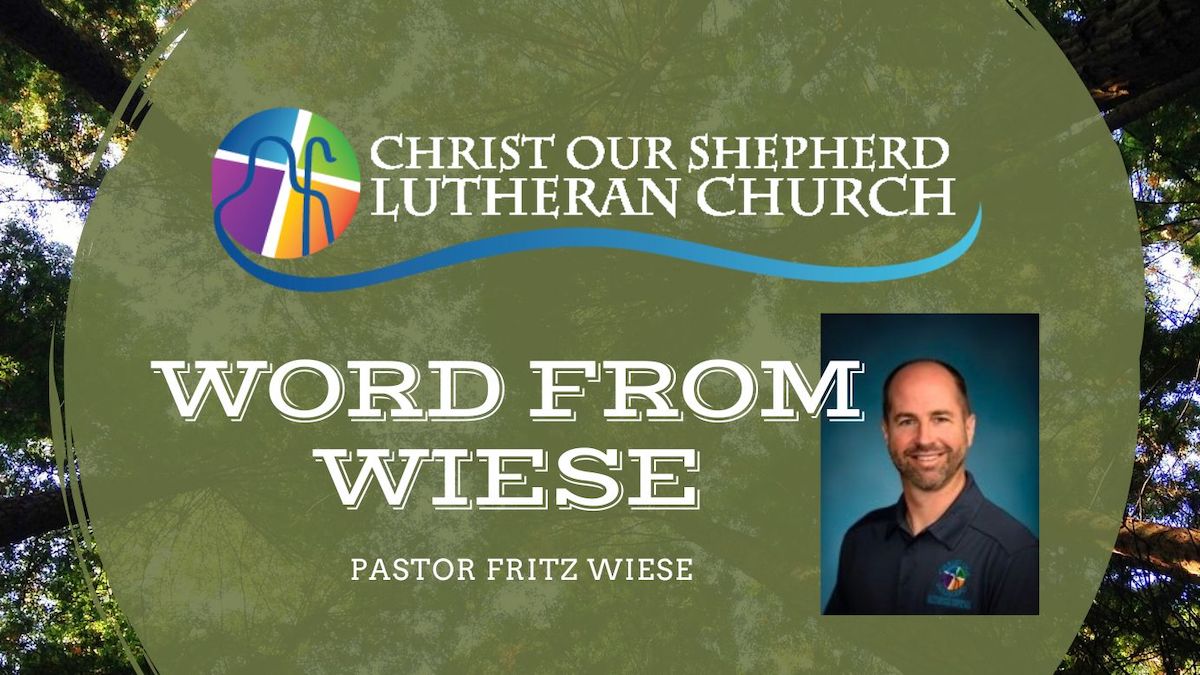Serenity’s Lutheran Connection
7 May 2025
The son of a Lutheran pastor.
Recently, I learned the author of the Serenity Prayer, centering the hearts of millions worldwide, was composed by a man

Serenity’s
growing up in a Lutheran home. You know the prayer, don’t you? “God grant me the serenity to accept the things I cannot change, the courage to change the things I can, and the wisdom to tell the difference.”
When I arrived at COS, this Serenity Prayer was posted in the staff hallway. (Are church staffs just one example of people who need the prayer’s centering wisdom to make it through the day? 😀).
The more I learned about the prayer, the more I appreciated it!
Here are some other fascinating discoveries you might want to know:
- While the prayer feels like it was written centuries ago by likes of Saints Augustine or Francis, many are surprised to learn it was composed less than a century ago.
- Richard Niebuhr, who served as a seminary professor as well as pastor, first composed the lines for a worship service near his family’s summer home in Heath, Massachusetts. Later, as his daughter Elisabeth Sifton tells it, Niebuhr contributed a version to a prayer book for soldiers being shipped off to fight in World War II. From there it eventually migrated to Alcoholics Anonymous.
- I enjoyed learning that Niebuhr attended the same seminary I did, Yale Divinity School. Except he attended the second decade of the 20th Century and I the last.
- The prayer we know today is a modification of his original prayer, which could easily be known as the Grace Prayer instead of Serenity Prayer. For, according to Sifton, his first version read, “God, give us the grace to accept with serenity the things that cannot be changed, the courage to change the things that should be changed, and the wisdom to distinguish the one from the other.”
- Notice that in the first version, Niebuhr did not simply pray for serenity, but for grace. Also, he did not pray for courage to change what can be changed, but only for what should be changed. That’s a very helpful distinction!
- And crucially, for Niebuhr’s daughter, the first version is not an individual prayer, but collective: “grant us,” not “grant me.” Just like we prayer “Our Father” in the Lord’s Prayer instead of “my Father.” Niebuhr believed that while the highest moral achievements could be attained only by individuals, “constructive social change was possible only by working together for justice.”
- According to Niebuhr, the most that can be expected from any society is not love but justice – which approximates, but never fulfills, the demands of love.
Furthermore, some scholars point out the prayer’s good Lutheran-Christian theology:
- The Serenity Prayer in all its forms rests on Niebuhr’s “hard-won sense of history’s tragic dimension, borne of his experience of two world wars and a global depression. He recognized that even the most courageous actions are not guaranteed to succeed.”
- But Niebuhr was no fatalist and did not believe uncertainty was a reason not to act. On the contrary, he believed that as human beings we are obligated to enter the fray of social conflict – not with an arrogant sense of our own superiority, but with a humble recognition of our limits (which is great Lutheran theology espousing how we live simultaneously as both saint and sinner).
Finally, let me conclude with a wonderful Niebuhr quote.
- “Nothing worth doing can be achieved in our lifetime; therefore we must be saved by hope. Nothing true or beautiful or good makes complete sense in any immediate context of history; therefore we must be saved by faith. Nothing we do, however virtuous, can be accomplished alone; therefore we must be saved by love.”
- In the end, for Niebuhr, it is God’s grace that determines the final course of history, rather than our own actions – enabling us to accept the reality that the outcomes of our actions are often out of our hands.
Fun to consider:
- In addition to personal use, many organizations recite the prayer for group centering, since it does not highlight any specific name of God. For instance, if there are over 120,300 Alcoholics Anonymous (AA) groups worldwide, meeting in approximately 180 countries, is the Serenity Prayer one of the most recited prayers in the world, after the Lord’s Prayer?
So now you know!
In Christ’s hope,
P Fritz
Let us pray (the original version of the prayer). “God, give us the grace to accept with serenity the things that cannot be changed, the courage to change the things that should be changed, and the wisdom to distinguish the one from the other.” Amen.


